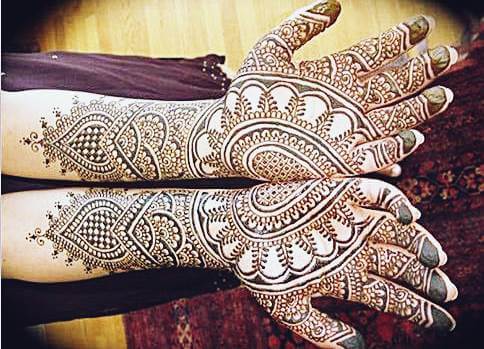The “D” Word: English Story by A. Farooqi
In our household of six girls and one cherished male issue from an upper class family in Karachi, the foremost question that preoccupied my mother’s troubled days and sleepless nights was how to secure marriages for her six girls. I remember once a certain aunty asked my mother how many children she had and Ammi responded rather hesitantly as if shamefully, “six girls and one boy.” which made aunty shriek in horror. “Oh my god how do you cope?” Ammi wasn’t amused to say the least.
The most vivid memory of my growing years is the issue of marriage, the lack of good proposals or any proposals for that matter. In her estimation, Ammi had made a grave strategic mistake which she probably rues to this day. She educated her girls at one the best convent schools in the city despite considerable opposition from her conservative family and amid constant backbiting and mud slinging on our pristine characters. I was always amazed at the creative stories our various family members, aunts and cousins always had about our imaginary misdemeanors, which somehow always made their way to Ammi’s ears and compounded her miseries. Yet when it came to marriages of her daughters, Ammi resorted to marry them off within the same orthodox family circle; thus making another tactical mistake. The result was all too obvious. All of us having imbibed from the fountain of progress and liberalism at school could not conform to the stagnating and stifling environments we found ourselves in after marriage.
To Ammi’s complete consternation she had brought forth from her womb six women who had a mind, who knew their worth, had opinions about almost everything under the sun and felt a deep need to be contributing members of the society rather than passive, adorned items placed on the marriage market. The dichotomy between mother and daughters widened as the years went by. In some cases becoming unbridgeable.
For me the most apt description for the six of us is the “the revisionist sisters.” For each of us history and naturally the future needs to be written with a new script. The standing obstacle for almost all of us was our partners. But divorce was worse than a four letter in our household. You just could not pronounce the word in the sanctum sanctorum of our family house. So in our collective discussions we would resort to coded language and thus divorce became “the D word.”
Yet despite our collective and individual suffering we could not summon enough courage to take the plunge. The reasons ranged from lack of financial independence to social ostracism, family pressures, concern for the children and perhaps most of all lack of emotional support from our parents.
Our lack of initiative also stemmed from the fact that major marital problems for each one of us stemmed from mental incompatibility with our partners which had no tangible manifestation. I sometimes joked that had we had blackened eyes and bruised bodies as proofs of torture it would have been easy to sell our “D” idea. But unfortunately mental and emotional scars cannot be brought forward as evidence for dissolution of marriage in a court of law or the court of parents. According to the old school of thought, mental compatibility between partners was an alien concept and all marital problems had one single cure, “compromise.” Yet compromise, so easily said is so hard to achieve when everything in ones mind, heart and soul screams against the unfairness of it all.
Looking at the problems faced by Pakistani women considering divorce, and even while statistics tell us that divorce has become more frequent, the whole issue is laden with emotional blackmailing, characterized by the blame game.
Divorce is generally a well considered and a serious decision taken by an individual, especially in our society where the social consequences are distinctly unpalatable for women. Therefore the general attitude towards any woman contemplating the “D” word is either total dismissal of her arguments or emotional blackmailing and urging for a compromise. My argument therefore is that in cases of mutual incompatibility why is there a need to fabricate evidence, to indulge in an elaborate blame game in order to justify the need to seek release from a relationship that is obviously not fulfilling one or both the partners. Why cannot mature individuals agree to part in grace and respect and continue a respectful interaction for the sake of the children. Why does it always have to be traumatic?
In the sub-continental psyche, marriage is considered to be the end of life for girls. From birth as I have seen, girls are being groomed to marry well. Their thoughts, actions, education and upbringing are all geared towards this one goal in life which becomes the only goal in life; the rest being peripheral. To my mind this is one reason why girls are so unwilling to exercise their rights to be an individual, they were never told that they had individual existence; they were only trained to be appendages to their husbands as an aesthetically pleasant wall paper.
All too often we forget that marriage is also social/legal contract albeit with an overwhelming emotional aspect. There is desperate need to put it in its right context. Our women ought to be told that life has a bigger purpose in the cosmic sense and that each life is given by the Creator as a gift and this gift must be justified by contributing to the society in its quest for a better world. Women have as much role to play in society as men. Therefore their education, knowledge, upbringing must be aimed at becoming a better human being, striving for a better world. Marriage is a part of life only and not life itself. And like everything in life can sometimes break down but with it life does not end too.
For us six sisters the struggle to exercise our individuality continues successfully or not; yet it is for a worthy cause for the collective right of the women of Pakistan to be given their God given and man denied right to have choices in life and to be able to exercise them prudently and independently.














